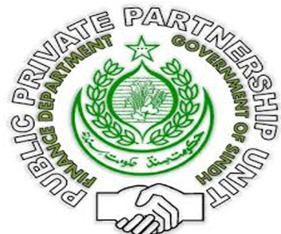آئی این پی ویلتھ پی کے
Ahmed Khan Malik
The Sindh government plans to significantly increase its focus on the public-private partnership (PPP) model for development projects in the upcoming financial year.

The decision reflects a strategic shift aimed at accelerating economic growth, enhancing infrastructure, and improving public service delivery while optimizing the use of public resources, said Murtaza Soomro, Director of the PPP Unit. Talking to WealthPK, he noted that in light of increasing fiscal challenges and limited budgetary space, the PPP model has emerged as a viable solution to undertake large-scale infrastructure and social sector projects.
"The Sindh government believes that by engaging private sector expertise, capital, and innovation, it can overcome several constraints that have historically slowed down project execution and service improvements,” he said. He said Chief Minister Murad Ali Shah, while reviewing the budget proposals for 2025-26, reiterated the government’s commitment to further institutionalizing and expanding the scope of the PPP initiatives.
“Public-private partnerships have proven effective in bringing transparency, efficiency, and quality to the development projects. We are determined to leverage this model more extensively in the coming fiscal year,” he said, quoting the chief minister.

He said the PPP Unit has already facilitated several successful projects including road infrastructure, education management, water treatment plants, and health services. Encouraged by past results, the government is now exploring additional sectors for PPP-based initiatives, such as solid waste management, transport systems, renewable energy, and urban housing.
He said among the major projects in the pipeline are expansion of Karachi’s transport network, construction of water desalination plants to address water scarcity, and development of modern industrial zones through joint ventures. These ventures are expected to create thousands of jobs and boost investor confidence in the province.
The next budget will allocate a significant amount to support PPP frameworks, including viability gap funding, project feasibility studies, and capacity-building of relevant institutions. Legal and regulatory reforms are also being proposed to streamline approval processes and ensure long-term sustainability of partnerships.
However, experts caution that careful planning, transparent procurement processes, and robust risk-sharing mechanisms are essential to avoid the pitfalls that have marred some PPP projects in the past across other regions. "Ensuring community involvement, environmental assessments, and effective contract enforcement will be critical to the long-term success of the model,” said Salim Memon, an expert on PPP mode of development.
He said the Sindh government’s decision to prioritize public-private partnerships in the upcoming financial year signals a proactive approach to development. "If implemented effectively, this model can transform the province’s economic and social landscape, setting an example for other provinces to follow,” he said.
Credit: INP-WealthPk












